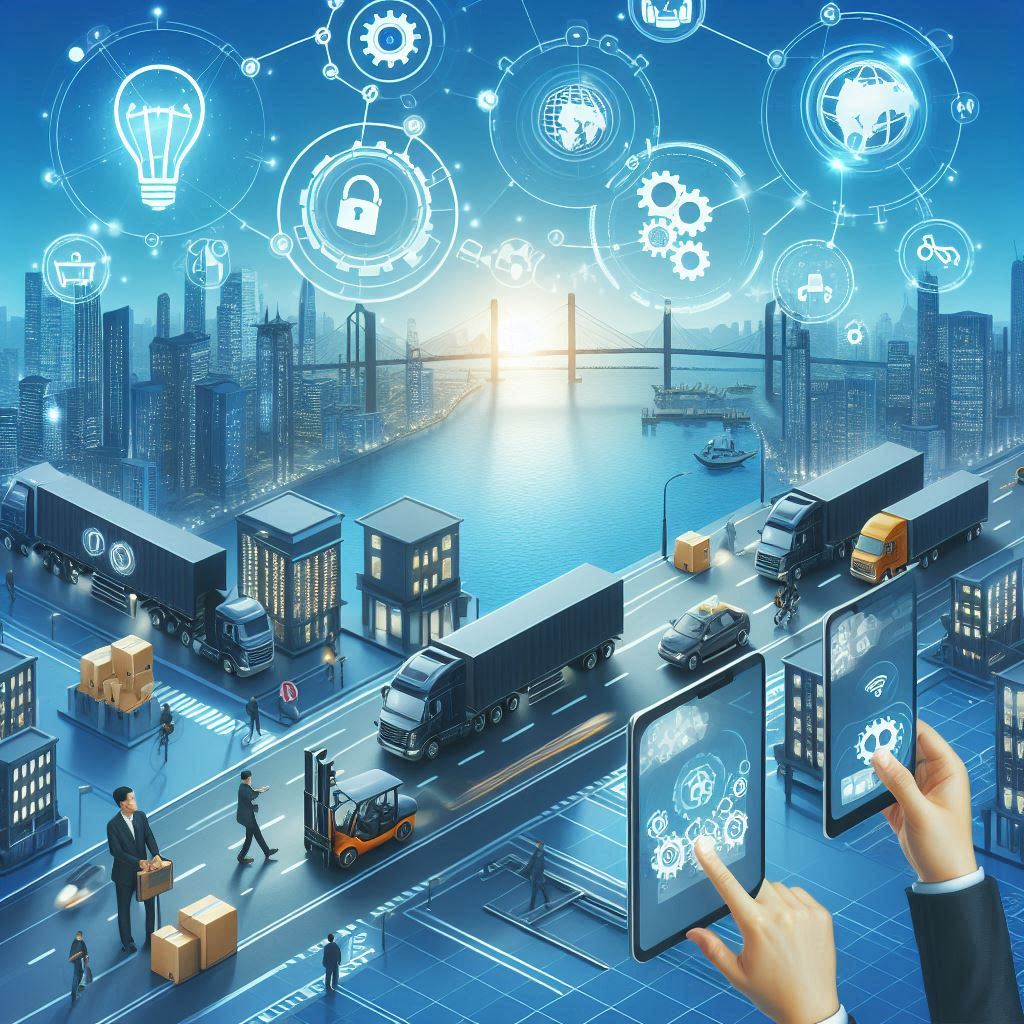The sharing economy, powered by AI, blockchain, and robotics, is revolutionizing logistics by maximizing efficiency, cutting costs, and boosting transparency. This transformative shift paves the way for a more innovative and sustainable future.

Dear reader,
In today’s world, the sharing economy is transforming many industries, and logistics is no exception. The concept of sharing resources has led to unprecedented efficiency gains and cost reductions, changing the way goods are stored, transported and managed. Here’s a closer look at how these innovations are shaping the future of logistics.
Optimising vehicle utilisation and reducing empty miles
One of the most important effects of the sharing economy on logistics is the optimisation of vehicle utilisation. Companies are now using shared storage and transport services to ensure that vehicles are always fully utilised. This approach drastically reduces empty kilometres, meaning vehicles no longer return empty after delivery. By filling every journey with freight, companies can save on unnecessary fuel consumption and reduce their carbon footprint, making logistics operations both cost-efficient and environmentally friendly.
Improved traceability through robotics and automation
The advent of robotics and automation in logistics has significantly improved the traceability of goods. Automated systems can track and manage stock with pinpoint accuracy, reducing the risk of human error and ensuring that goods are always where they are supposed to be. This improved traceability not only streamlines operations, but also boosts customer confidence as companies can provide real-time information on the status and location of their shipments.
Ensuring transparency with blockchain technology
Blockchain technology is another innovation in the logistics industry that enables unprecedented transparency in the supply chain. By using a decentralised ledger, companies can record every transaction and every movement of goods in an immutable way. This transparency helps to prevent fraud, ensure compliance and promote trust between all parties involved. Blockchain’s ability to provide a clear and immutable record of the movement of goods from origin to destination is invaluable for both businesses and customers.
Driving innovation with artificial intelligence
Artificial intelligence (AI) is at the forefront of driving innovation in logistics. By analysing vast amounts of data, AI can identify future trends and predict demand with remarkable accuracy. This foresight enables companies to make informed decisions, optimise their supply chains and stay one step ahead of the competition. From predicting peak shipping times to automating warehouse management, AI is revolutionising every aspect of logistics and ensuring that companies can adapt quickly and efficiently to changing market conditions.
Conclusion
The sharing economy, combined with cutting-edge technologies such as robotics, blockchain and AI, is revolutionising the logistics industry. These innovations are leading to greater efficiency, cost savings and a more sustainable future for logistics companies. As companies capitalise on these advances, the logistics landscape will undoubtedly continue to evolve, offering even more efficient and transparent services to businesses and consumers alike.
By staying on top of and adapting to these trends, companies can utilise the full potential of the sharing economy and technological advancements to drive growth and remain competitive in an ever-changing market.
Your
Thomas Hellmuth-Sander

Schreibe einen Kommentar